CAPTAIN OF THE SHIP IN THE OPERATING ROOM
The Anesthesia Consultant
JUNE 6, 2025
Surgeons are experts in surgery and anesthesiology providers are experts in anesthesia care.
This site uses cookies to improve your experience. To help us insure we adhere to various privacy regulations, please select your country/region of residence. If you do not select a country, we will assume you are from the United States. Select your Cookie Settings or view our Privacy Policy and Terms of Use.
Cookies and similar technologies are used on this website for proper function of the website, for tracking performance analytics and for marketing purposes. We and some of our third-party providers may use cookie data for various purposes. Please review the cookie settings below and choose your preference.
Used for the proper function of the website
Used for monitoring website traffic and interactions
Cookies and similar technologies are used on this website for proper function of the website, for tracking performance analytics and for marketing purposes. We and some of our third-party providers may use cookie data for various purposes. Please review the cookie settings below and choose your preference.
 Supervision Related Topics
Supervision Related Topics 
The Anesthesia Consultant
JUNE 6, 2025
Surgeons are experts in surgery and anesthesiology providers are experts in anesthesia care.

SpecialtyCare
JUNE 21, 2025
Types of Career Opportunities in Sterile Processing The sterile processing field offers various career opportunities in sterile processing at different experience levels and specialization areas: Entry-Level Positions Career opportunities in sterile processing for newcomers include: Sterile Processing Technician Decontaminate, clean, and sterilize (..)

DFW Anesthesia Professionals
SEPTEMBER 11, 2024
Under the supervision of the attending anesthesiologist, the resident evaluates the patient and confirms an appropriate anesthesia plan based on the individual needs of the patient (3). They first receive a briefing regarding the patient’s medical records and current status from the anesthesia provider who supervised the patient’s surgery.

The Anesthesia Consultant
SEPTEMBER 23, 2024
Command centers will likely allow professionals to supervise an increased number of locations safely in the operating room. These include models for the more efficient delivery of moderate sedation in non–operating room settings and acuity or risk-based models that may allow for greater physician supervision ratios in low-acuity settings.”
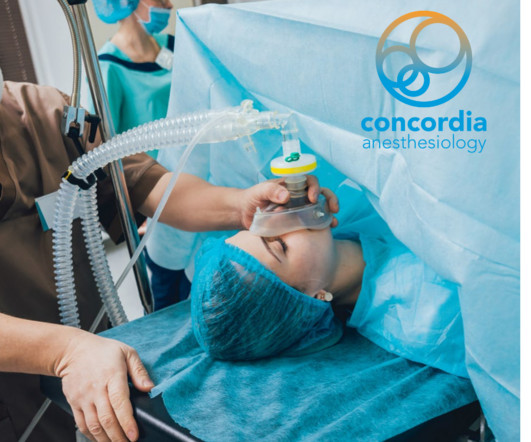
Concordia Anesthesiology
AUGUST 30, 2021
The benefits of this model are that there are fewer providers involved and less supervision needed. Anesthesia Care Team (ACT) This model incorporates a physician anesthesiologist who supervises CRNAs (certified registered nurse anesthetists), with resident physicians-in-training who ultimately administer the anesthetics.

Nashville Anesthesia Professionals
JUNE 3, 2024
The level of independence that CRNAs have varies according to state regulations, with some able to independently lead anesthesia care, while others require physician supervision. They also monitor vital signs throughout anesthesia, assist patients with recovery and side effects, and conduct post-procedure evaluations.

The Anesthesia Consultant
APRIL 25, 2021
In this model, an MD anesthesiologist supervises up to four CRNAs who work in up to four different operating rooms simultaneously. The responsibility for the anesthesia care in this model resides with the supervising MD anesthesiologist. Non-supervised CRNAs will be found mainly at rural hospitals.
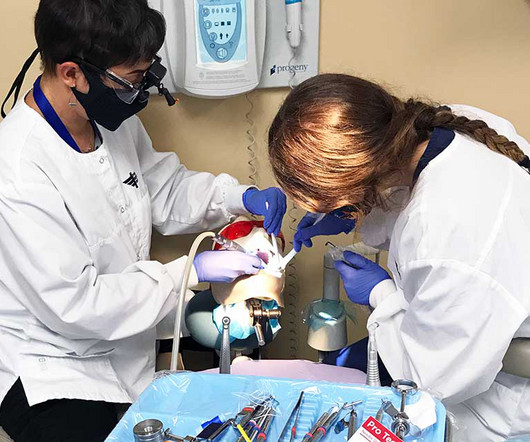
Pima Medical Institute
MARCH 31, 2025
As a dental hygienist, you will provide patients preventative oral care, under the supervision of a dentist. With a dental assistant certificate from Pima Medical Institute, you could complete your program and be working in the field in less than a year. Dental Hygienist Maybe youre more drawn to the idea of becoming a dental hygienist.

Platinum Meidcal Staffing
SEPTEMBER 21, 2024
A Medication Technician plays a crucial role in the healthcare industry by assisting with the administration of medications under the supervision of a nurse. Often found in long-term care facilities, rehab centers, and hospice care in Maryland, D.C.,

Neurosurgery
FEBRUARY 26, 2024
Dr. Halsted’s principles of surgical training included the need to understand the scientific basis of disease, provide supervised care of surgical patients and gain increasing responsibility during training, leading to independent practice. Halsted , MD. The last 25 years have been a time of dramatic change in neurosurgical education.

RASA Training
JUNE 19, 2017
An easier internship experience – How nice would it be to have the chance to complete the supervised clinical internship at your local facility and under the direction of surgeons of your choice? That’s exactly what RASA offers students! Our program teaches multi-specialty, we don’t require rotations in every specialty.
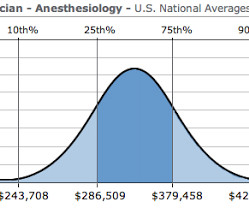
The Anesthesia Consultant
AUGUST 28, 2016
If you work in a practice which utilizes an anesthesia care team, where one physician anesthesiologist may supervise, for example, 4 Certified Registered Nurse Anesthetists (CRNAs), then a physician’s income is increased because he or she is billing for and supervising care for multiple concurrent surgeries.
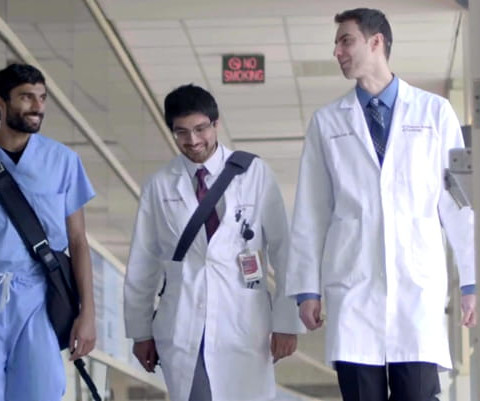
IU School of Medicine
MARCH 11, 2024
Shah will be involved in the cardiovascular care of patients at IU Health Methodist Hospital and participate in innovative technology research and development with the KCVRC under the supervision of expert faculty. Dr. Shah will begin his fellowship in July. “I

The Anesthesia Consultant
NOVEMBER 23, 2016
Between them, Larson and Jaffe have supervised tens of thousands of anesthetics in a university practice. Miller’s Anesthesia , which contain an encyclopedic knowledge of our specialty, but the new Larson and Jaffe book will teach you how to improve and enhance your patient care.

The Anesthesia Consultant
JULY 23, 2021
Will it be more appropriate for a busy anesthesiologist covering multiple operating rooms to be supervising the admittedly extreme scenario of ‘information technology experts’ ensuring the machines are functioning properly or actual healthcare providers monitoring the patient and not the machine?

Trocar Supplies
JANUARY 9, 2025
Ensuring a Safe and Effective HRT Treatment Beyond hormone formulation, the quality of medical tools and supplies used during HRT proceduressuch as hormone pellet insertioncan impact patient outcomes.

Trocar Supplies
MAY 6, 2022
The pellets produce a baseline for testosterone that can be adjusted with occasional use of patches or injections under medical supervision. Men who benefit from testosterone therapy are typically injected with 10 or 12 pellets of hormone about once every four months. And they are even used in hormone treatment for pets.
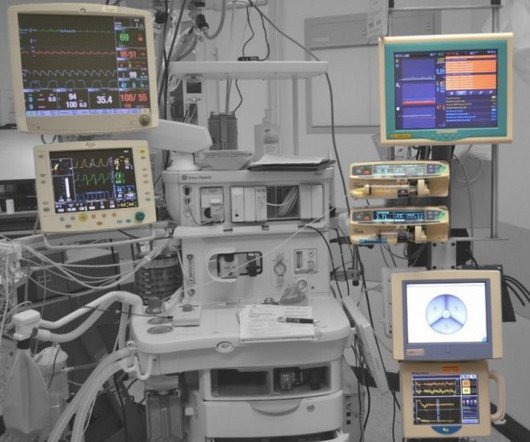
The Anesthesia Consultant
JANUARY 29, 2020
It is 2030 and I am scheduled to supervise anesthesia for a 40-yr-old patient undergoing laparoscopic cholecystectomy. First, there was manual transmission, then automatic transmission, double clutch systems, navigation systems, all sorts of safety assist systems…soon, there will be self-driving cars. How will we do anesthesia in the future?
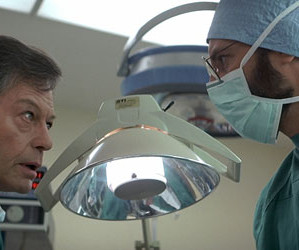
The Anesthesia Consultant
JANUARY 2, 2016
Rather than physician anesthesiologists personally performing anesthesia, expect to see CRNAs supervised by physician anesthesiologists in an anesthesia care team, or in some states, CRNAs working alone. Hospital systems will have increased incentives to perform anesthetics with cheaper labor.

Trocar Supplies
JULY 5, 2023
Here is a general rule for responsible medical staff training supervision: If a procedure requires a document, there needs to be an audit trail to corresponding training. But you do not necessarily have to maintain the documentation to which the audit trail leads.

EARN Cares
OCTOBER 23, 2022
Outpatient clinics will have a smaller group of registered nurses, likely with one serving as something similar to a charge nurse but called something else like a supervising nurse or a registered nurse level II. Not only do charge nurses work in hospital settings, they can work in any healthcare setting. Why are they important?
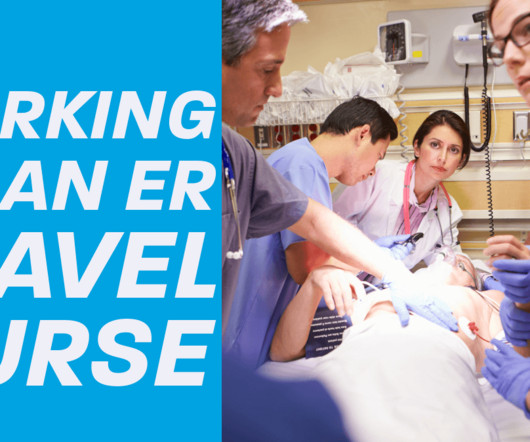
Triage Staffing
SEPTEMBER 19, 2024
Or were you closely supervised by the ER staff? You’ll need at least two years of experience before you can travel. Think back to your very first day working in the ER. Did you know what you were doing? Nurses are always learning and growing and aren’t ready to be fully on their own for a couple years.

SpecialtyCare
SEPTEMBER 14, 2024
Students participate in rotations in hospitals, where they work under the supervision of experienced perfusionists during real cardiac surgeries. This hands-on training helps students develop the technical skills necessary to operate life-support machines in real-world surgical settings.

RASA Training
OCTOBER 24, 2018
In all instances you are working under the direct supervision of the surgeon. You could work as a solo practitioner or join a multi-specialty group, a hospital or surgical center. This is a wonderful career and one that I am admittedly enamored by. Remember this…if you love what you do, you’ll never work a day in your life!

The Anesthesia Consultant
MAY 6, 2017
In many private practice anesthesia groups, physician anesthesiologists supervise multiple nurse anesthetists in multiple operating rooms. A private practice anesthesia group needn’t be a physician-only group. These groups are still single specialty anesthesia groups.

SpecialtyCare
AUGUST 25, 2024
As you gain experience, you may also have the opportunity to take on leadership roles, such as supervising a team of technologists or managing a neurodiagnostic department. Specializing in these areas can lead to higher earning potential and increased job satisfaction.

The Anesthesia Consultant
JUNE 26, 2022
CRNAs can now administer anesthesia independent of any physician anesthesiologist supervision in the majority of the United States. By contrast, CRNAs are registered nurses experienced in intensive care or emergency room nursing, who then enter a 2 – 3 year program of learning the skills to anesthetize patients.

The Anesthesia Consultant
OCTOBER 14, 2022
The anesthesiologist may be supervising the transfusion of blood, platelets, or plasma. A patient bound for the ICU may be asleep and intubated, which requires the anesthesiologist to ventilate the lungs with an Ambu bag attached to the endotracheal tube during the transfer.

Anna in Med School
MAY 14, 2015
I saw another friendly face on the postpartum maternity unit: one of my NICU mentors was on Well Baby and supervised Evie’s care. So a rather happily mundane childbirth punctuated by a few moments of excitement…and it still took me over 2000 words (over-sharer much?).

The Anesthesia Consultant
FEBRUARY 16, 2021
You supervise the rotating of the operating room table 180 degrees, so the patient’s head and airway are adjacent to the anesthesia equipment again. As you near the end of this first case, you log into the second case of your anesthetic list on the EMR, and begin information gathering and EMR documentation as you did for your first case.

EARN Cares
OCTOBER 11, 2023
It's essential to detail prior experience in leadership roles within clinical settings, emphasizing skills in staff supervision, patient care coordination, and decision-making. did they supervise you, work alongside you or report to you). Salary or reasons for leaving a past role.

IU School of Medicine
MARCH 11, 2024
She had 65 soldiers under observation at the height of the epidemic and supervised checking twice daily of 400 others, successfully keeping the panic on campus under control.

The Anesthesia Consultant
OCTOBER 18, 2018
When an anesthesiologist finishes their formal training, he or she has a brain full of academic teachings, and has performed hundreds of anesthetics in a university setting while being supervised by faculty members.

The Anesthesia Consultant
JULY 12, 2021
In anesthesia care team models, in which a Certified Nurse Anesthetist (CRNA) is physically present in the operating room while being supervised by an attending physician anesthesiologist, the MD anesthesiologist can be summoned to return to the operating room in seconds if a problem arises.

The Anesthesia Consultant
JULY 12, 2017
At an academic/university hospital, the anesthesiologist might be a resident MD in his or her first, second, or third year of anesthesia training, and that resident will then be supervised by a faculty member who is responsible for either one operating room or two. It doesn’t have to be this way.

The Anesthesia Consultant
FEBRUARY 6, 2019
In an anesthesia care team, a physician anesthesiologist supervises up to four operating rooms and each operating room is staffed with a certified registered nurse anesthetist (CRNA). In a university hospital, a faculty member may supervise two operating rooms each with a resident anesthesiologist-in-training in attendance.
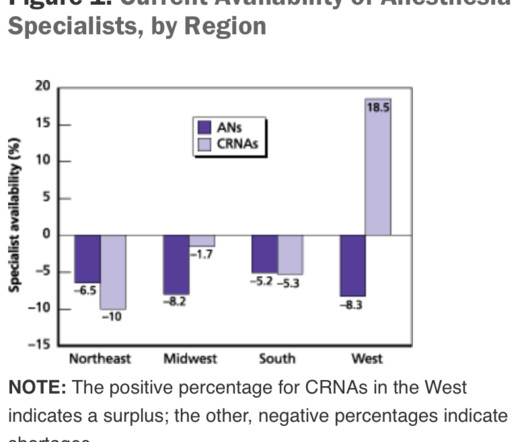
The Anesthesia Consultant
SEPTEMBER 3, 2021
In this model, an MD anesthesiologist supervises up to four CRNAs who work in up to four different operating rooms simultaneously. All the responsibility in the ACT model resides with the supervising MD anesthesiologist. or doctor of osteopathy (D.O.) who has successfully completed an approved anesthesiology residency program.
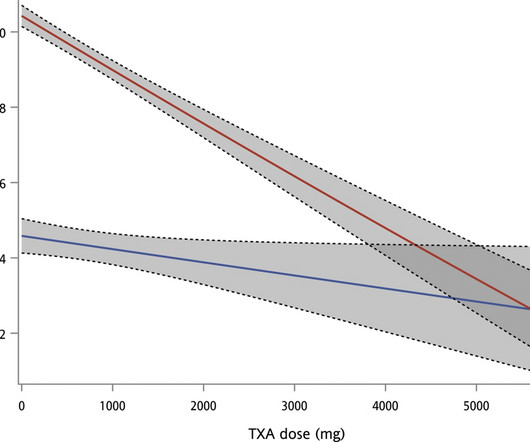
The Anesthesia Blog
FEBRUARY 21, 2023
One interesting point relates to who trainees should anaesthetise with distant supervision and how this has changed over time. Getting it right first time is key to reducing out environmental impact, and this new editorial from Coldwell and Craig outlines how this might be done by better deploying anaesthetic skills and workforce.

The Anesthesia Consultant
MAY 2, 2023
Anesthesiologists who supervise Certified Registered Nurse Anesthetists (CRNAs) or Anesthesia Assistants (AAs) in an anesthesia care team model often have to provide care for multiple patients simultaneously.

The Anesthesia Consultant
AUGUST 26, 2015
He added that the nurse anesthetists will be fully credentialed and supervised by doctors.” Legacy spokesman Brian Terrett says the hospital will gain more control but not benefit financially from the transition because anesthesia costs are billed to patients.

The Anesthesia Consultant
AUGUST 7, 2017
The government’s medical costs may decrease if work currently done by expensive-to-train physicians is instead performed by nurse practitioners or nurses aided by artificial intelligence machines, supervised by relatively few human physicians. Google is working on an AIM project in the United Kingdom entitled DeepMind.

The Anesthesia Consultant
SEPTEMBER 25, 2015
A supervising attending must teach them, mentor them, and lecture them—case by case—until each resident learns the basic skills. Many days later I learned that the isoflurane had no way to escape the patient’s lungs or brain unless I kept the ventilator on and continued ventilation of the patient’s lungs.

The Anesthesia Consultant
OCTOBER 21, 2015
A physician anesthesiologist supervising four CRNAs in four operating rooms could do four times as many cases per year, so a predicted incidence would be 16-20 cardiac arrests in a 30-year career. A busy anesthesiologist doing his or her own cases performs 1000 anesthetics per year.

The Anesthesia Consultant
OCTOBER 8, 2019
If an anesthesia care team is attending to you, how many rooms is each physician anesthesiologist supervising? Will your anesthesia professional be a physician anesthesiologist, a Certified Registered Nurse Anesthetist (CRNA), or an anesthesia care team made up of both?
Expert insights. Personalized for you.
We have resent the email to
Are you sure you want to cancel your subscriptions?

Let's personalize your content